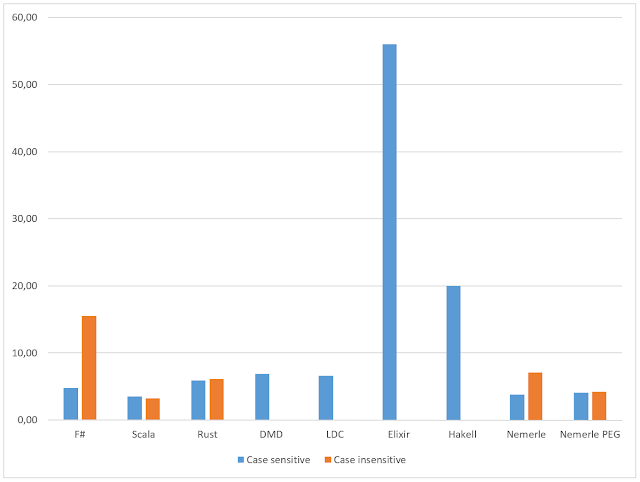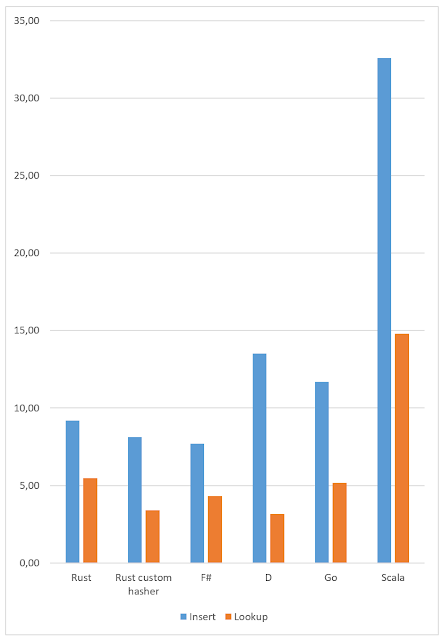Rust: fib
Rust is an interesting language. It is not a primitive one, like Go where we don't have ADTs, pattern matching and generics (but we do have Nils). And it's advertising as a safe and performant system language. Today is the very first day I'm looking at it. Let's "smoke" test it with Fibonacci :)
Debug: 3.44 seconds, release: 1.66 seconds. This is not very impressive, but pretty fast indeed.
Debug: 3.44 seconds, release: 1.66 seconds. This is not very impressive, but pretty fast indeed.
- C# - 1.26
- D (DMD) - 1.3
- F# - 1.38
- Nemerle - 1.45
- Rust - 1.66
- Haskell - 2.8
- Clojure - 9
- Erlang - 17
- Ruby - 60
- Python - 120
It's very interesting how it'll behave in concurrent Fibonacci test.
The compiler is quite slow: it takes 2-3 seconds to build this tiny program.
The compiler is quite slow: it takes 2-3 seconds to build this tiny program.



Comments